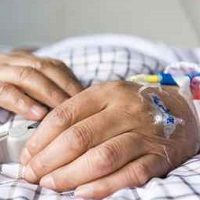Article
Why Family Caregivers Are Desperate for a Doctor's Advice
Author(s):
Patients discharged from the hospital often rely on a family member to perform complex nursing tasks at home. These caregivers are critical, but too often physicians do not acknowledge these family members' role or help them with care instructions, says Carol Levine of the United Hospital Fund.

Fifty years ago, when people were admitted to a hospital, they stayed there until they were well.
“What a concept,” says Carol Levine, director of the United Hospital Fund’s Families and Health Care Project.
Those days are not coming back, Levine said. As a result, family members are often expected—and often want—to be the primary care giver for a discharged patient who needs a lot of assistance and nursing.
In a recent visit to MD Magazine’s studio, Levine discussed the problems that taking on this post-hospital care can cause, and how physicians can help.
Levine, who in 1993 was the recipient of a MacArthur Foundation fellowship (the so-called ‘genius’ grant program) for work she did on caring for children orphaned by AIDS, is currently working on the family caregiver issue. She brings personal experience to the task. Levine cared for her seriously ill husband for 17 years before he died, she said.
"I started thinking that I couldn't be the only one out there who needed help with this," she said.
At the UHF, a nonprofit research and philanthropic organization in Manhattan, Levine took on the task. The results included creating a website Next Step in Care.
“Family caregivers are so intimidated by the health-care system that they will agree [to take on care responsibilities] without understanding what they’re agreeing to,” Levine said.
They may think they are signing on to do household tasks like making meals, doing shopping, managing the checkbook, but in reality, they are often agreeing to take on nursing tasks, she said.
That can mean “complication medication management, wound care, managing equipment like feeding tubes, like PICC lines,” Levine said.
“There is a considerable ‘ick’ factor involved,” she said.
Though they agree out of feelings of love, or duty, or respect, these caregivers—who can range in age from teenagers to people in their 80s—are often overwhelmed, Levine said.
The care consumes time they would otherwise have for working, seeing other family members and friends, and having a social life. Beyond that, the care itself is emotionally demanding and often difficult.
“What they find most troubling is a lack of understand from doctors, nurses, and hospitals that they are actually doing something really significant,“ she said, “They need the expert advice of professionals.”
Though nurses and other hospital staff are usually the ones who give instructions on medications and wound care “In my experience family members don’t think something is real unless the doctor says it’s real.”
“If the doctor doesn't say ‘ this is the way it should go’, it isn’t done,” she said, “So there is a major role for the physician.”
Caregivers would be greatly reassured if physicians stepped up, Levine said.
“I would like to tell physicians that the family member who accompanies your patient to the visit is a critical person in that patient’s care,” she said, not just someone who is providing transportation.
“You can help both of them do a better job of managing medications, of keeping up with diet or whatever the thing is. . . the family member is a critical part of the patient’s care and needs to be engaged,” she said.
The nextstepincare.org site has a provider section as well as guides for family caregivers.
“They are very straightforward,” she said. "Our approach is “do these things and you’re going to be in much better shape.”





